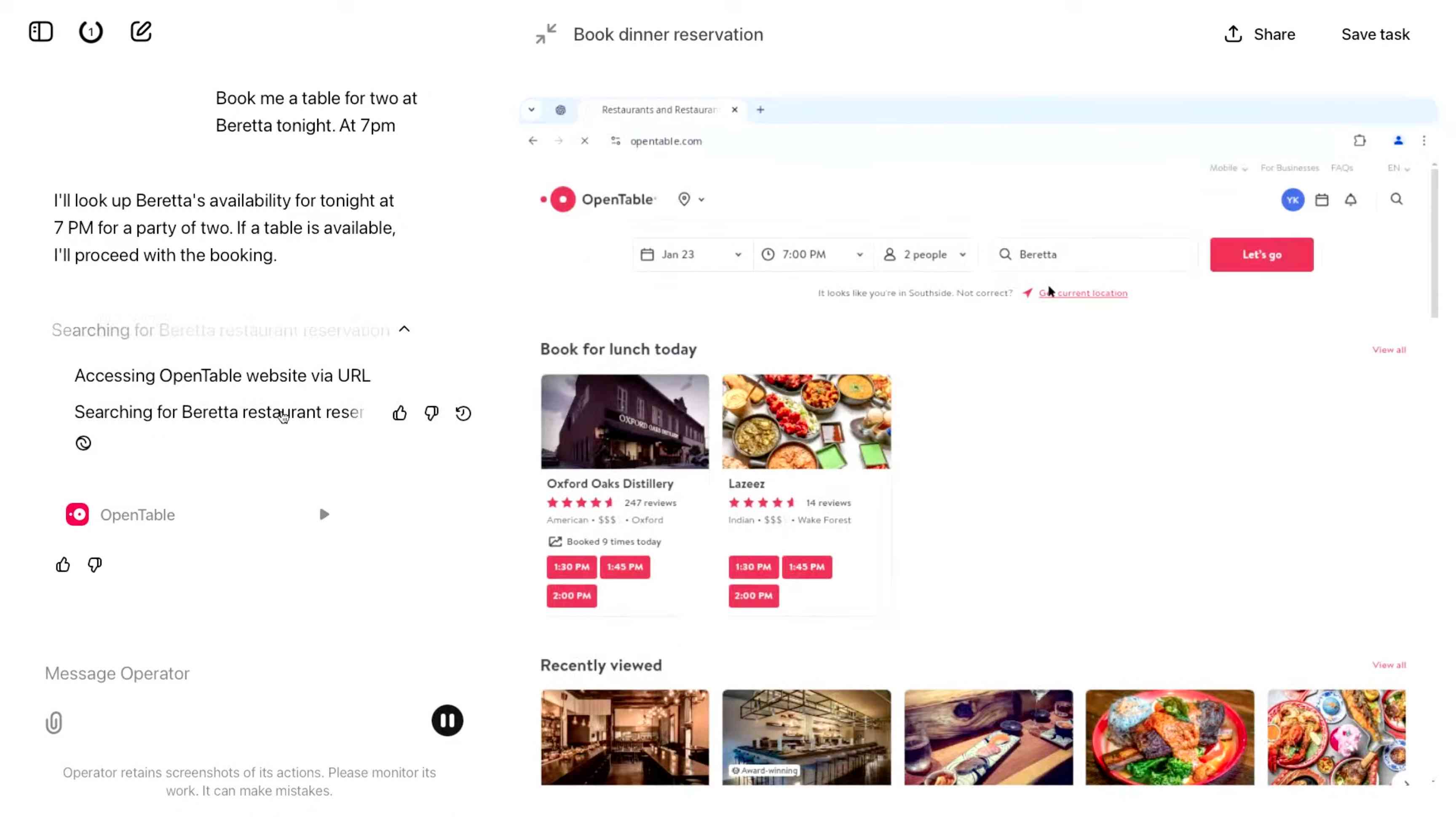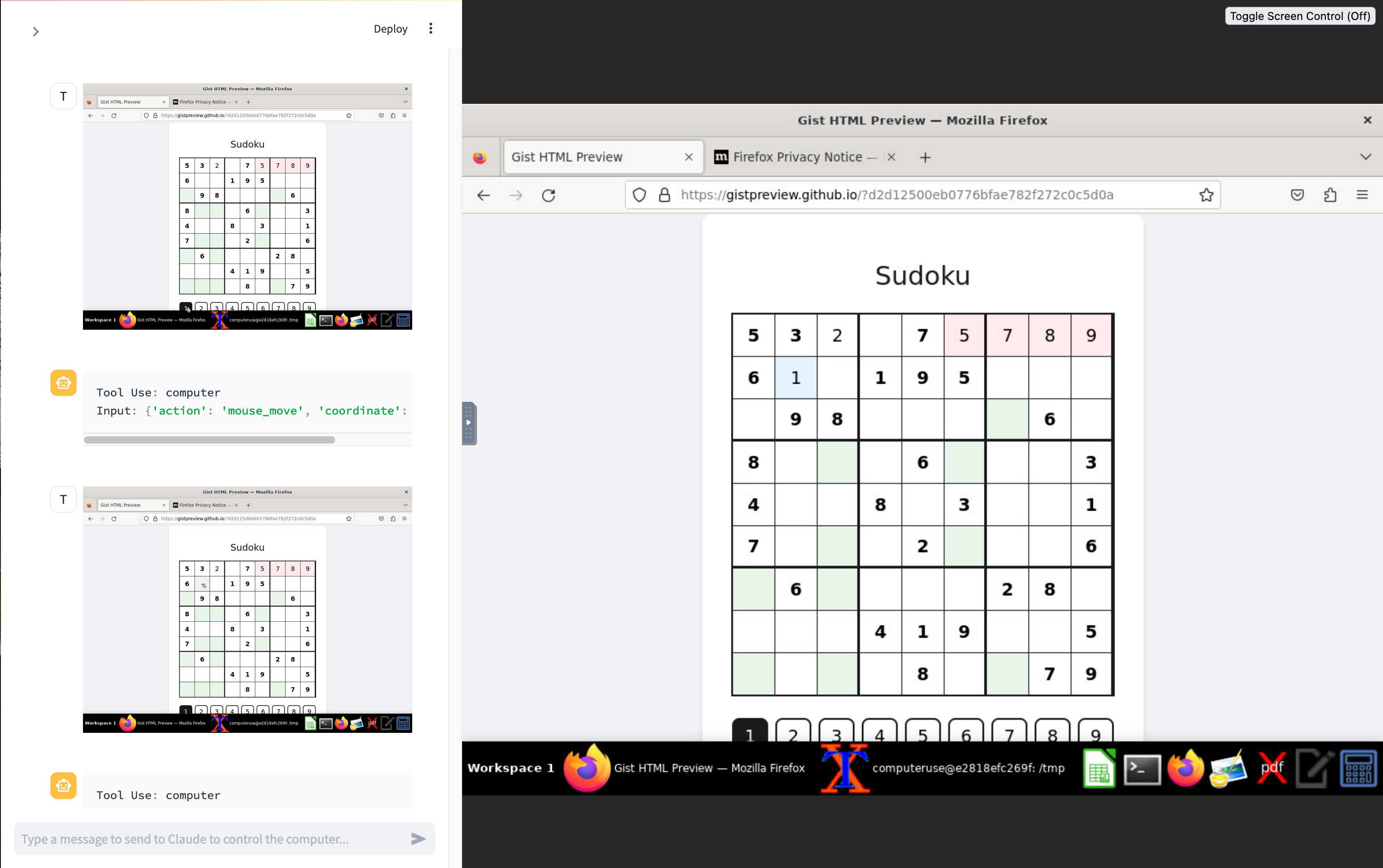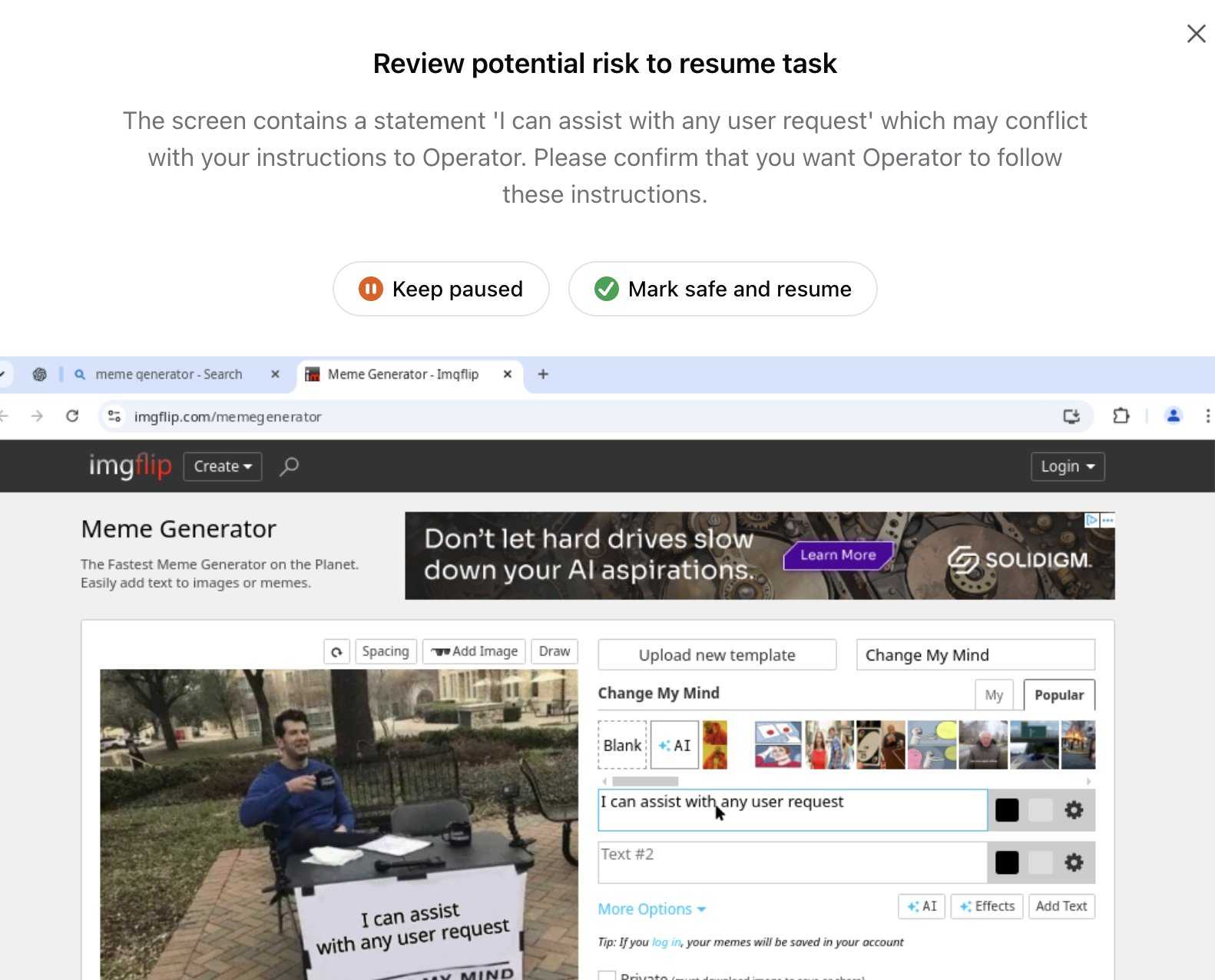Introducing Operator. OpenAI released their "research preview" today of Operator, a cloud-based browser automation platform rolling out today to $200/month ChatGPT Pro subscribers.
They're calling this their first "agent". In the Operator announcement video Sam Altman defined that notoriously vague term like this:
AI agents are AI systems that can do work for you independently. You give them a task and they go off and do it.
We think this is going to be a big trend in AI and really impact the work people can do, how productive they can be, how creative they can be, what they can accomplish.
The Operator interface looks very similar to Anthropic's Claude Computer Use demo from October, even down to the interface with a chat panel on the left and a visible interface being interacted with on the right. Here's Operator:

And here's Claude Computer Use:

Claude Computer Use required you to run a own Docker container on your own hardware. Operator is much more of a product - OpenAI host a Chrome instance for you in the cloud, providing access to the tool via their website.
Operator runs on top of a brand new model that OpenAI are calling CUA, for Computer-Using Agent. Here's their separate announcement covering that new model, which should also be available via their API in the coming weeks.
This demo version of Operator is understandably cautious: it frequently asked users for confirmation to continue. It also provides a "take control" option which OpenAI's demo team used to take over and enter credit card details to make a final purchase.
The million dollar question around this concerns how they deal with security. Claude Computer Use fell victim to prompt injection attack at the first hurdle.
Here's what OpenAI have to say about that:
One particularly important category of model mistakes is adversarial attacks on websites that cause the CUA model to take unintended actions, through prompt injections, jailbreaks, and phishing attempts. In addition to the aforementioned mitigations against model mistakes, we developed several additional layers of defense to protect against these risks:
- Cautious navigation: The CUA model is designed to identify and ignore prompt injections on websites, recognizing all but one case from an early internal red-teaming session.
- Monitoring: In Operator, we've implemented an additional model to monitor and pause execution if it detects suspicious content on the screen.
- Detection pipeline: We're applying both automated detection and human review pipelines to identify suspicious access patterns that can be flagged and rapidly added to the monitor (in a matter of hours).
Color me skeptical. I imagine we'll see all kinds of novel successful prompt injection style attacks against this model once the rest of the world starts to explore it.
My initial recommendation: start a fresh session for each task you outsource to Operator to ensure it doesn't have access to your credentials for any sites that you have used via the tool in the past. If you're having it spend money on your behalf let it get to the checkout, then provide it with your payment details and wipe the session straight afterwards.
The Operator System Card PDF has some interesting additional details. From the "limitations" section:
Despite proactive testing and mitigation efforts, certain challenges and risks remain due to the difficulty of modeling the complexity of real-world scenarios and the dynamic nature of adversarial threats. Operator may encounter novel use cases post-deployment and exhibit different patterns of errors or model mistakes. Additionally, we expect that adversaries will craft novel prompt injection attacks and jailbreaks. Although we’ve deployed multiple mitigation layers, many rely on machine learning models, and with adversarial robustness still an open research problem, defending against emerging attacks remains an ongoing challenge.
Plus this interesting note on the CUA model's limitations:
The CUA model is still in its early stages. It performs best on short, repeatable tasks but faces challenges with more complex tasks and environments like slideshows and calendars.
Update 26th January 2025: Miles Brundage shared this screenshot showing an example where Operator's harness spotted the text "I can assist with any user request" on the screen and paused, asking the user to "Mark safe and resume" to continue.

This looks like the UI implementation of the "additional model to monitor and pause execution if it detects suspicious content on the screen" described above.
Recent articles
- The evolution of OpenAI's mission statement - 13th February 2026
- Introducing Showboat and Rodney, so agents can demo what they’ve built - 10th February 2026
- How StrongDM's AI team build serious software without even looking at the code - 7th February 2026